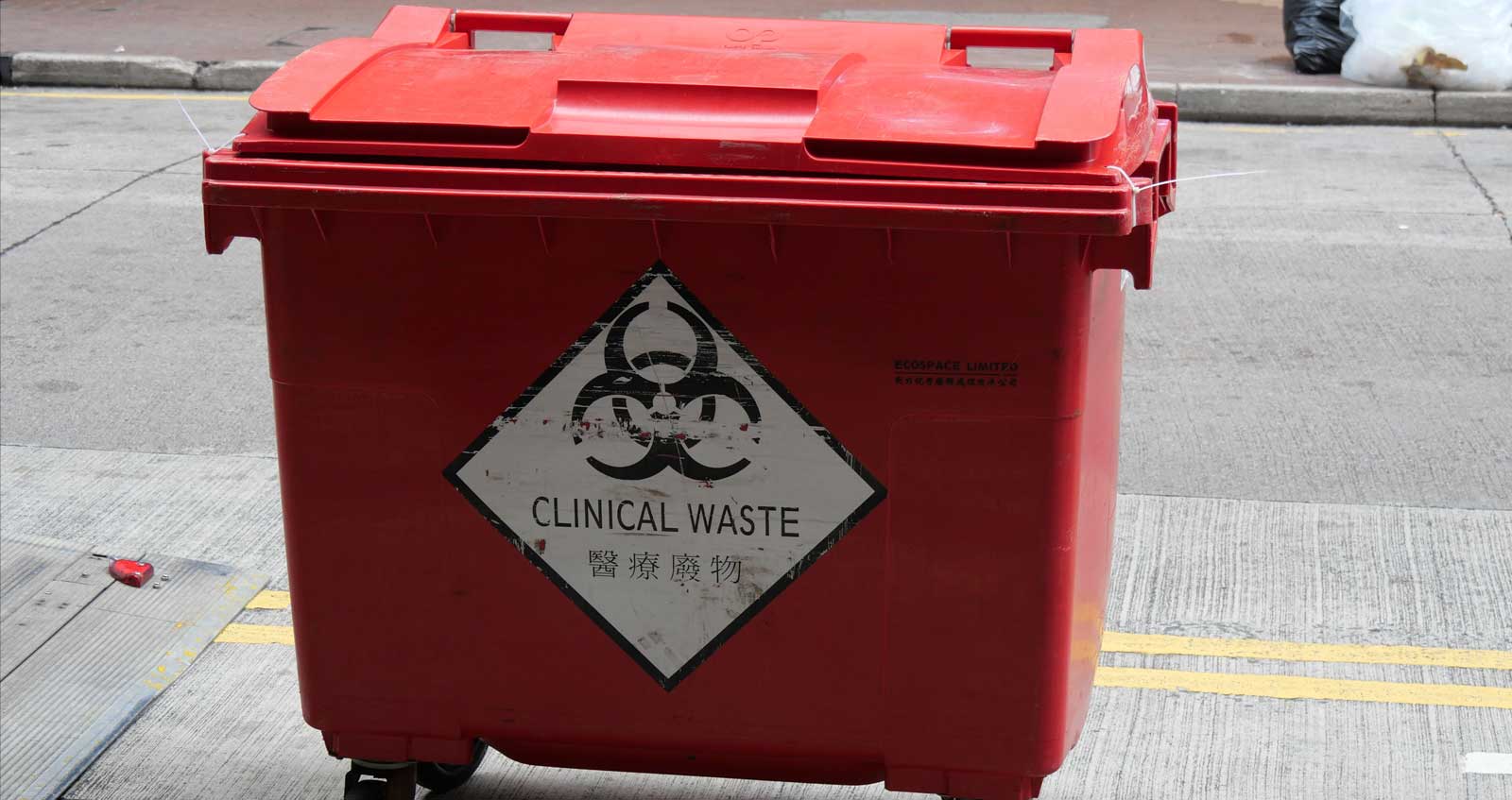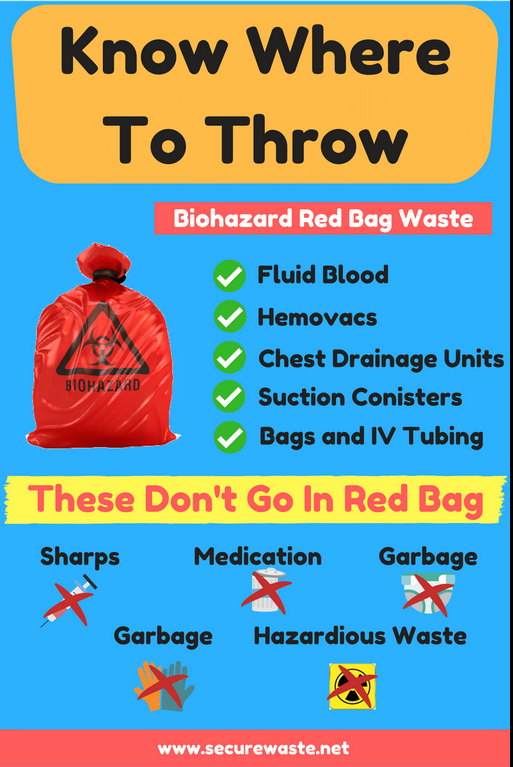Your Trusted Partner: Medical Waste Removal Services Tailored to Your Needs
Your Trusted Partner: Medical Waste Removal Services Tailored to Your Needs
Blog Article
Keep Ahead of Rules: Specialist Recommendations on Medical Waste Disposal
In a globe where the medical care market is continuously progressing, it is necessary for medical centers to remain ahead of policies when it involves the appropriate disposal of clinical waste. With strict guidelines and constant regulatory modifications, it can be testing to navigate the complexities of this procedure. However, with expert recommendations, centers can guarantee compliance and minimize risks connected with incorrect waste disposal. From comprehending the different classifications of clinical waste to carrying out the ideal collection and partition approaches, this discussion will certainly supply useful understandings and actionable pointers to assist centers remain ahead of policies in the ever-changing landscape of medical garbage disposal.
Recognizing Medical Waste Categories
Recognizing medical waste categories is crucial for correct disposal and administration in medical care centers. Clinical waste describes any waste created by health care activities that may present a danger to public health and wellness or the setting. It is important to categorize clinical waste properly to ensure its secure handling, transportation, therapy, and disposal.
There are numerous categories of clinical waste that health care centers require to be familiar with. The most usual categories consist of transmittable waste, pathological waste, sharps waste, pharmaceutical waste, and chemical waste. Each classification has specific guidelines and regulations for its correct administration and disposal.
Infectious waste consists of products contaminated with blood or other physical liquids, such as handwear covers, gowns, and research laboratory societies. Pathological waste describes human cells, body organs, or body parts that require unique handling and disposal. Sharps waste consists of utilized needles, syringes, and various other sharp objects that can create injury and transfer infections. Pharmaceutical waste consists of expired, extra, or infected medications that require cautious handling and disposal. Finally, chemical waste consists of solvents, disinfectants, and other chemical substances used in healthcare centers.
Staying Up-To-Date With Regulatory Adjustments
Staying current with regulative changes is essential for health care centers to make certain conformity and correct monitoring of medical waste disposal. medical waste removal near me. With regulations regularly advancing, it is crucial for medical care centers to stay up-to-date to avoid penalties, fines, and possible damage to the environment and public wellness
To remain in advance of regulative changes, medical care facilities should develop a system for tracking and tracking updates. This can be done by subscribing to governing newsletters, participating in meetings and workshops, and proactively joining industry organizations. Additionally, centers ought to designate an employee or group liable for remaining informed and distributing information to pertinent stakeholders.
Routine interaction with regulatory firms is also essential. Healthcare centers should develop relationships with regional, state, and federal agencies to ensure they recognize any adjustments in regulations that may influence their waste administration practices. This can be done with normal meetings, engagement in public comment periods, and aggressive engagement with regulative firms.
Furthermore, medical care facilities should take into consideration partnering with waste administration companies that concentrate on medical garbage disposal (medical waste disposal services with WasteX). These firms are typically fluent in the current policies and can supply advice and support to make certain compliance
Executing Appropriate Collection and Partition Techniques
To efficiently take care of clinical garbage disposal, healthcare facilities must establish correct collection and partition approaches in accordance with regulatory guidelines. Implementing these techniques makes certain the secure handling and disposal of possibly unsafe products, shields the setting, and minimizes the threat of infections and injuries to medical care employees and the public.
Proper collection and partition methods entail the usage of marked containers and classifying systems. Medical care facilities ought to offer clearly labeled containers for different sorts of medical waste, such as sharps, contagious waste, pharmaceutical waste, and non-hazardous waste. These containers ought to be color-coded and clearly significant to prevent complication and advertise simple identification.
Additionally, healthcare centers must educate their personnel on the appropriate treatments for accumulating and segregating medical waste. This includes educating them on the different kinds of waste, the proper containers to use, and the importance of following regulations and standards. Routine training sessions and refresher courses need to be carried out to guarantee that team member remain updated on best techniques.
Moreover, healthcare centers ought to establish a system for normal collection and disposal of medical waste. This might include partnering with licensed waste administration companies that specialize in clinical waste disposal. These firms will make sure that the collected waste is carried and dealt with in conformity with regulatory demands.
Picking the Right Disposal Techniques

Incineration is one of the most typical and effective approaches link for throwing away particular sorts of clinical waste, such as pathological waste and sharps. It includes the regulated burning of waste at heats, reducing it to ash. However, incineration can release damaging toxins into the air and add to air pollution.

Various other disposal techniques include chemical therapy, microwave treatment, and landfilling. Chemical therapy includes using chemicals to decontaminate and counteract the waste. Microwave treatment makes use of microwave energy to warmth and disinfect the waste. Landfilling involves burying the waste in an assigned landfill location (medical waste disposal services with WasteX). Landfilling click here to find out more needs to be the last resort due to the possible threat of contamination to dirt and groundwater.
Ensuring Compliance Through Paperwork and Training
After very carefully taking into consideration the appropriate disposal techniques for medical waste, health care facilities need to make sure conformity with guidelines and decrease ecological influence by applying reliable documents and training treatments. This action is critical in keeping a secure and lasting environment for both healthcare employees and the basic public.

Healthcare workers who deal with medical waste ought to get proper training on waste partition, managing, and disposal treatments. By giving thorough training, medical care centers can encourage their team to make enlightened choices and decrease the threat of inappropriate waste disposal.
Final Thought
To conclude, staying ahead of policies in medical waste disposal is crucial for medical care facilities. medical waste removal near me. Recognizing the various categories of medical waste, staying upgraded with regulative modifications, executing proper collection and partition approaches, picking the proper disposal techniques, and guaranteeing compliance via paperwork and training are all important steps. By adhering to these standards, health care companies can efficiently get rid of and manage of clinical waste in a responsible and risk-free manner
From comprehending the different categories of clinical waste to executing the right collection and partition methods, this conversation will certainly offer actionable ideas and valuable insights to aid facilities remain ahead of guidelines in the ever-changing landscape of medical waste disposal. - medical waste disposal services with WasteX
The most typical groups include transmittable waste, pathological waste, sharps waste, pharmaceutical waste, and chemical waste. Medical care facilities ought to provide clearly classified containers for different types of medical waste, such as sharps, contagious waste, pharmaceutical waste, and non-hazardous waste. Healthcare facilities need to establish a comprehensive system to record and track all elements of medical waste disposal, including types of waste produced, amounts, and disposal methods made use of. Medical care workers that take care of clinical waste should receive appropriate training on waste segregation, dealing with, and disposal procedures.
Report this page